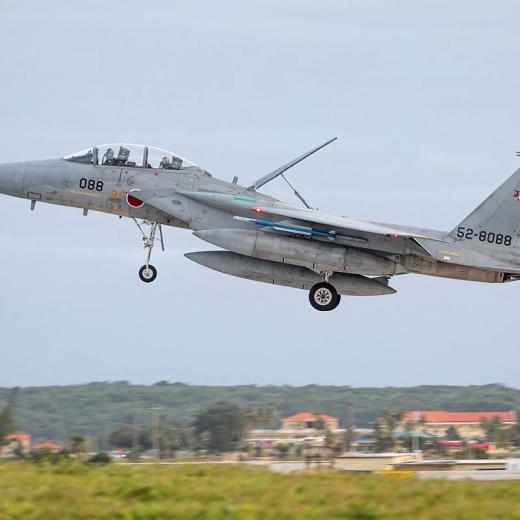BLUF
Auftragstaktik and Mission Command are military doctrines that emphasize decentralized decision-making and empowering subordinate commanders to exercise their initiative within the framework of the commander's intent. While Auftragstaktik originated in the 19th century, Mission Command has evolved to incorporate modern communication and information technology, providing a more comprehensive framework for command and control in contemporary military operations.Summary
- Auftragstaktik is a decentralized military doctrine emphasizing initiative and flexibility for subordinate commanders.
- It originated in the 19th-century Austro-Hungarian Empire and was influenced by Clausewitz's "On War."
- It emphasizes delegation of authority and autonomy to subordinates in achieving mission objectives.
- It enables agile and adaptive decision-making, leading to improved team performance and higher levels of innovation and initiative.
- Its disadvantages include inexperienced leaders, coordination challenges, varying interpretations, overemphasis on initiative, ineffective communication, and risk of insubordination.
- Despite its disadvantages, it has proven to be valuable in historical military contexts when implemented by well-trained, experienced, and disciplined forces.
- Mission Command shares similarities with Auftragstaktik but incorporates modern communication and information technology for more efficient coordination and situational awareness.
- It is a more comprehensive concept that encompasses tactical, operational, and strategic levels of warfare, with principles such as mutual trust, shared understanding, and mission orders.
- Mission Command is an evolution of Auftragstaktik adapted to the requirements and technologies of modern warfare.
- Both concepts share the core idea of decentralizing decision-making and encouraging initiative among subordinate commanders.
ARTICLES MISSION COMMAND (AUFTRAGSTAKTIK) LEADERSHIP DOCTRINE/PHILOSOPHY
- MAR 2018 Command for the Mission: Understanding Mission Command | Australian Army Research Centre (AARC)
- Main Points:
- Auftragstaktik was a philosophy in the military.
- Auftragstaktik is often misunderstood as a superior assigning a mission to a subordinate without specifying how to achieve it.
- The article highlights that this is a narrow definition.
- Mission command is a command relevant to the mission.
- The philosophy of mission command is about empowering subordinates to make decisions.
- The superior provides guidance and intent, but the subordinate has the freedom to execute the mission in a way that achieves the intent.
- It was underpinned by education, trust, mentoring, and varying leadership styles based on group maturity.
- The concept involved a combination of directive and directed control.
- The superior should educate and explain the orders to the subordinate.
- They should explain the 'who, what, where, when, and why' of the orders.
- Auftragstaktik emphasizes the importance of understanding the reason behind orders.
- JULY 2020 Can Mission Command Actually Work? - Modern War Institute (usma.edu)
- Main Points:
- Reviews book: Donald Vandergriff, Adopting Mission Command: Developing Leaders for a Superior Command Culture (Naval Institute Press, 2019)
- The US Army has been implementing mission command for eight years, but its flaws were exposed during the COVID-19 pandemic.
- Vandergriff argues that the Army should adopt a hundred-year-old German command philosophy called Auftragstaktik, to better prepare the Army for future warfare.
- The Army has over-invested in technology and under-invested in educating junior leaders.
- The Army's centralized governance, top-down approaches to training and missions, and unwieldy doctrine are preventing the adoption of mission command.
- Vandergriff provides historical case studies to outline the Prussian and German adoption of Auftragstaktik.
- Vandergriff's book is selective in how it employs history and falls into the trap of myth-making.
- Vandergriff makes almost no mention of the role French doctrinal dogmatism or the French military's reliance on the methodical order of battle played in France's defeat.
- Robert Citino argues that Auftragstaktik may not be replicable outside of the Prussian/German tradition from which it rose.
- Eitan Shamir's Transforming Command argues that no military can fully embrace Auftragstaktik as the Germans envisioned it.
- Vandergriff's book makes a convincing argument that an Industrial Age military education system is holding the Army back.
- SEP 2021 Mission Command in the Yom Kippur War | Small Wars Journal
- Main Points
- Article discusses use of mission command principles in the Yom Kippur War
- Case study of MG Ariel Sharon's effective implementation of competence, mutual trust, disciplined initiative, and risk acceptance
- Egypt and Syria conducted military exercises as a cover for their impending attack on Israel in September 1973.
- Israeli leadership had early warning of the attack, but Prime Minister Meir chose not to conduct preemptive strikes.
- Meir's decision was a stark contrast to Israel's actions during the 1967 Six Day War, reflecting a toxic risk aversion among senior leadership at the time.
- Retired General Sharon, serving as a Commander in the IDF reserves, played a crucial role in Israel's victory by isolating the Egyptian Third Army and forcing a U.S.-brokered peace agreement.
- Sharon's use of mission command played a crucial role in Israel's victory
- Mission command evolved in the Israeli Defense Forces, officially adopted in 2006
References
- LEADERSHIP STYLES—ARTICLES THE RUNWAY
- LINKS TO MILITARY PUBLICATIONS: LEADERSHIP THE RUNWAY
- LEADERSHIP USEFUL ARTICLES THE RUNWAY
- ADF Philosophical Doctrine - ADF Leadership Recommended Reading THE RUNWAY
- ADDITIONAL READING RAAF RUNWAY (PME)
- RAAF RUNWAY: RATIONALE, GUIDELINES, LEARNING OUTCOMES, ETC





